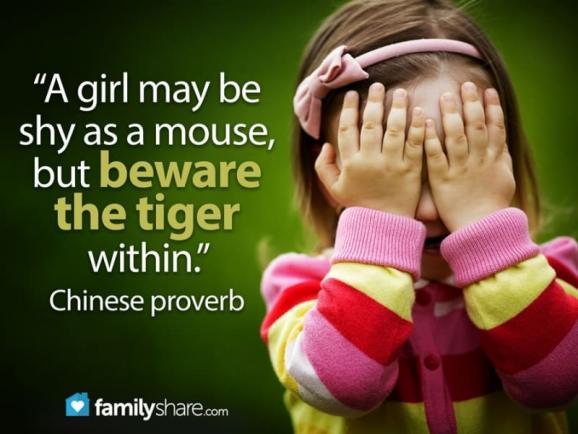
In our very outgoing and vocal culture, does being shy become a disadvantage for your child? In truth, the answer is no as most children will eventually find their own way in the world and their own way of making friends and expressing themselves; but if you are concerned about your child's shyness there are things you can do to help and encourage them. Here are three primary ways you can help:
Create a climate of trust and reassurance
Begin by reassuring your child that she is good enough, she is unique, and that is why she is special. Creating a trusting safe environment allows him to open up as himself to discover his likes and dislikes and whom he is inside. Nurture your child, notice his/her individual needs and make sure they are being met. A child who has his needs met is more likely to notice the needs of others and respond in kind. She will also begin to feel calmer and secure in her environment and in meeting others.
Give your children responsibility, allow for mistakes and learning experiences
Beginning with simple household chores you can help your child learn about responsibility as well as gain confidence in their skills and decision making processes. Even when your child makes a mistake she is learning and gaining experience. This experience can in turn help her to understand that meeting others and being together can be a beneficial experience. You can use these same skills in learning responsibility in making new friends and meeting new people. You can learn skills and techniques that will help her learn to accept her shyness without letting it hold her back. She can use the sensitivity that comes from being shy to really be a friend to others while also learning more about herself, as well.
Find his talents and skills and provide opportunities for him to develop them
This will not only help give him self-confidence but will also allow him to meet others with similar interests and make new friends. Allowing your child to find that one talent or skill will help to increase her self-confidence. Allowing your child to explore this talent in an environment with other children will provide opportunities for him to make new friends. It's much easier to make new friends when you have similar interests. These new activities can then lead to new social experiences on which your child can continue to build.
While children that are shy can have a harder time at school due to slower social skills, it's important to remember that shy kids will learn to manage their shyness. They will find those first friends with similar interests, and they can then build on those successes. Shy children, in fact, tend to have more empathy and compassion for others, and once they create friends they have longer lasting and much deeper relationships. If, as a parent, you can ensure that your child's emotional needs are being met that his self-confidence is being promoted, and positive skills are being taught; you can guide your child through her shyness to rewarding interactions with a variety of friends and experiences.

